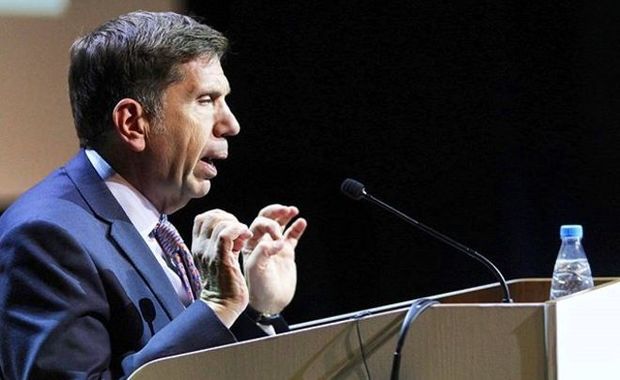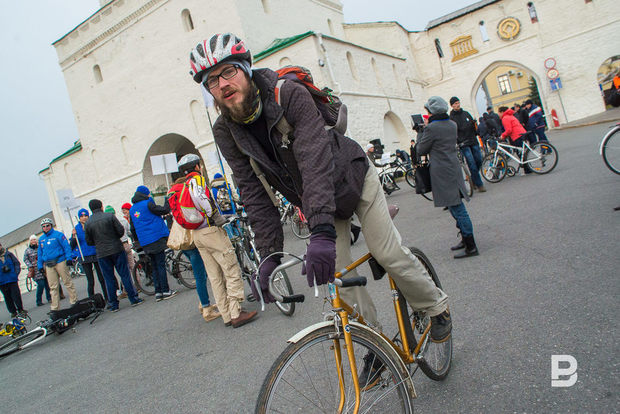Singaporean miracle: farmers on the roofs, export of potable water and lord of the taxi drives
Speakers on MadeInKazan offer to clean the roads for cyclists in Russia in winter and don’t be afraid of Big Brother
Speeches of SERC Programme Director at Institute of Infocomm Research See-Kiong from Singapore, director of Contemporary Solutions and Deputy Mayor for the City of Philadelphia in Mayor's Office of Transportation Rovert Ravelli and one of the most expected guests in Kazan – former main architect of Barcelona Josep Acebillo were to be the closing on KazanInMade. However, the latter did not give the gift of his presence to the young who had a thirst for knowledge: the famous architect, who visit the capital of Tatarstan very often, could not come. A correspondent of Realnoe Vremya listened to the speeches and found out how Big Data helped Singapore and why the specialist from Philadelphia thought it's possible to use bicycle in Russia even in winter.
Big Data à la Singapore: vertical farming on the roof and solar powered noise sensors
'Kazan is on the way to become a smart city,' Dr See-Kiong, a Big Data tech specialist from Singapore, started his speech. His lecture was dedicated to how it's possible to make our life easier and improve the life of local resident using high-tech projects. As he says, Singapore started this journey 50 years ago. At present, it entered the next stage – a smart nation – due to the development of science and technologies.
The specialist paid attention to the fact that the development of technologies was not the final target but only a way. The key goal is to improve people's life. Having explained that 'necessity is a mother of inventions, Dr See-Kiong put several examples of how to get out of a difficult situation. For instance, in Singapore, there is a very serious drinking water problem. This is why they learnt how to produce it using dirty water. Now they are not only give it to the local residents but also sell it to other cities. So, as he says, they cared about the problem of food export in Singapore. Development of vertical farming on the roofs was a possible solution. For this reason, the plans is that if something happens, the city will be able to feed itself. The speaker told, initially, vegetables did not use to grow on farms. But due to the sensors detecting their growth, it was decided to make these farms rotating, so that the products would have enough sun from all sides.

Dr See-Kiong defined four necessary actions to create a smart city:
- Listen to the city and its residents' heartbeat
- Understand the city and its people
- Learn to foretell the future
- Implement a technology on scheduling
The story of creation of vertical farming refers to the second step. He gave an example of a project on installation of noise sensors that help explain the source of the noise and, consequently, give a hand to house designers. In addition, the sensors are solar powered.
Saying 'learn to foretell the future' the specialist means the taxi data collection system from all Singapore. It helps find out where the demand doesn't correspond to the supply in order to redistribute the stream of cars. The app enables to give the data on the demand for a taxi at any time and in any place and see the speed of the cars. But, to tell the truth, according to him, at this moment taxi drivers don't pay attention to the investigation.
So, Dr See-Kiong is sure people should not be afraid of technologies because the fact that a human creates means the person is smarter. Moreover, the speaker thinks it is up to the government to allay the public's fears of Big Brother, it is to be documented in the legislation.
'We should not refuse the opportunities Big Data gives us, a right legislation must exist,' the speaker thinks. In his opinion, only useful data should be used in the work. Installation of sensors in the Singaporean metro, where it is displayed how much time it takes for a person to get a train and leave the underground, might be an example. Dr See-Kiong pointed out that developers deliberately paint people's faces, so they respect their right to personal integrity.

To change cars to bicycles using the hand of the authority
Deputy Mayor for the City of Philadelphia in Mayor's Office of Transportation Rovert Ravelli also started his speech mentioning Kazan. 'I've heard many good things about Kazan's infrastructure,' the invited speakers praised the city.
The key idea of his speech was that people should start using bicycles and walk on foot more to solve the problem of transport collapse. Amsterdam with its bicycle culture, Sidney and other cities were put as an example.
He offered carsharing, possible variants of public transport fare with discounts, homeshoring, construction of free interchange stations were other ways in a fight against traffic jams.
What is more, as he says, eco transport plan, not road construction from point A to point B, is needed. The speaker thinks it is not correct to build roads on big parcels of land; it is simply necessary to landscape the territories near metro and interchange stations. Robert Ravelli urged to use the potential of the territories surrounding the stations – to start house building, open shops, green the territory reviving the place.
'Many zones, including in Russia, have stations that doesn't refer to them. It is gold. Metro station is to be used, much money was spent on it,' the speaker guesses. If the place looks better, there will be more passengers and income to the municipal purse respectively.

Robert Ravelli guesses the problem cannot be solved by building new roads because it will inevitably cause a greater increase of the traffic flow. Meanwhile, the government should think about how to make people start using bicycles and be interested in walking on foot. 'We need to re-educate the people,' the specialist opines. And re-educations requires a governmental financing.
In answer to the speech delivered by Deputy Mayor for the City of Philadelphia in Mayor's Office of Transportation, a question, which was literally on the surface, arose in the hall. How to use a bicycle or walk on foot in winter in Russia that has peculiar weather conditions?
But Robert Ravelli noted that Scandinavian countries also have very cold weather, but this culture stuck. In the speaker's point of view, it's necessary to organise a right infrastructure that will help people choose these travel modes. He says in Norway people use bicycles even in winter because the roads are cleaned.